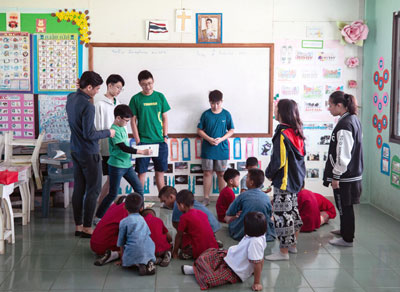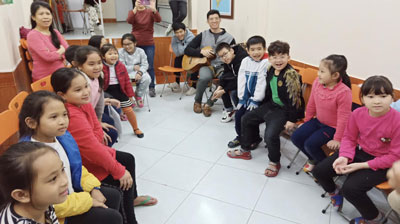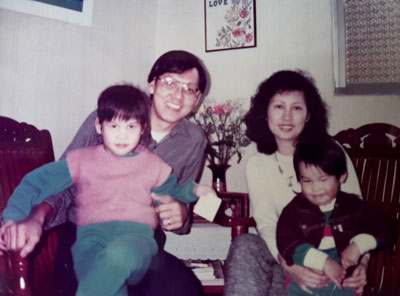How do you know if God wants you to be a missionary? What is the work like? What are the challenges? The DiscipleKids classes hear from KKMC missionaries themselves.
On 4 July 2021, the WSCS partnered the Missions Committee to carry out the Kids Mission Adventure, an online programme for the DiscipleKids classes. Inspired by the Methodist Missions Society’s programme of the same name, it is designed to give children an overview of missions, as well as highlight KKMC’s missionaries and our mission fields. KKMC missionaries, “Hope”, as well as Patrick Tan and his wife Yin Heng, were invited to share with the DiscipleKids classes about their work.
Maureen Fong, a member of the WSCS committee said, “The purpose of the session was to have the children realise that missions is not an event, but a natural by-product of our relationship with Christ. The activities were designed to help each child to appreciate the service of the missionaries, care and pray for them, and see opportunities in local and global missions.”
Brian Tan, the chairperson of the Missions Committee, opened the programme by explaining the Great Commission from Matthew 28:19-20, “Therefore go and make disciples of all nations, baptising them in the name of the Father, and of the Son and of the Holy Spirit, and teaching them to obey everything I have commanded you. And surely, I am with you always, to the very end of the age.”
He reminded the children that the gospel was our responsibility to share, and should be shared with everyone, across the streets and also across the seas.

Lyndon Gan, the Lay Ministry Staff for Missions, screened a video – Can children be involved in missions? The answer is yes, of course! In that video, the children saw other youngsters from KKMC actively bringing the love of Jesus to friends in places like Batam and to the Lahu people in Northern Thailand.
In separate breakout rooms, the lower primary levels were introduced to “Hope”, who serves together with “Joy” in a limited access country, while the upper primary levels met Patrick and Yin Heng, who served as missionaries in Hong Kong and Taiwan.
DK1-3: Not every country has the same freedom to worship God

“Hope” shared pictures and stories of the country that she serves in. She told the children that her work as a missionary included conducting English lessons for children. Through the videos, photographs and stories that she told, the children saw how the people in this other country treasured God’s word and His love. It also highlighted how blessed children in Singapore could attend church services and worship God freely in Singapore.
“Hope” and “Joy” run an English club called Joy Kids for the children of their church neighbourhood every Monday evening. The classes are currently suspended because of the pandemic. [Please pray for the pandemic to be under control and pray God will prepare the ground of the community for future Joy Kids.]
DK4-6: Reaching out to people of different backgrounds is important

While moving overseas can be exciting, Patrick and Yin Heng shared that they had to integrate with the local culture of their host country. This was not always easy to do. In Taiwan, one of the things they had to do was learn to eat stinky tofu.
But it’s not just exotic food that missionaries need to adapt to. Learning to reach out to those from very different backgrounds was equally important.
Patrick told a story about a farmer who lived with guilt from killing one of his own relatives in a fight. Ashamed of himself, he donated a lot of money to a cult group in the hope doing so would remove his guilt, but it did not. Patrick and Yin Heng reached out to him over a period of time, and he eventually became a Christian, finally through God’s forgiveness releasing himself of his guilt.
An interesting question was posed to the children: Is mission work only for adults, who know how to share the gospel and have a lot of training?
Not so, Patrick and Yin Heng said. In fact, their two children played a big role in supporting their mission work as well. By being cooperative while growing up in the mission field and befriending local children, they created opportunities for their parents to reach out to families with children their age. This gave the DK4-6s lots to think about on how they can participate and serve in missions.

